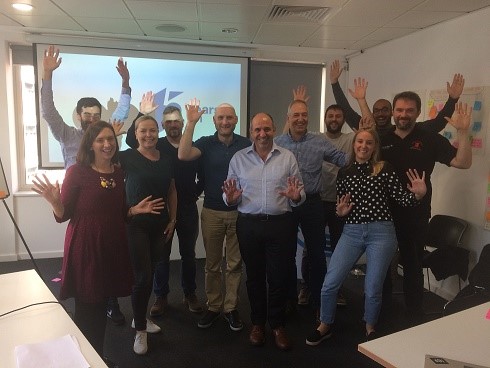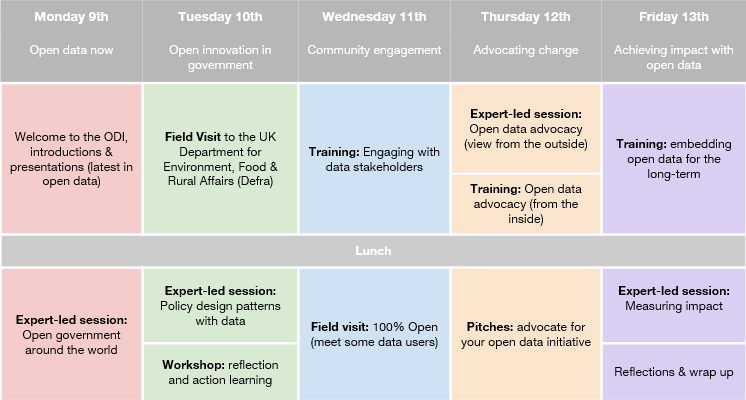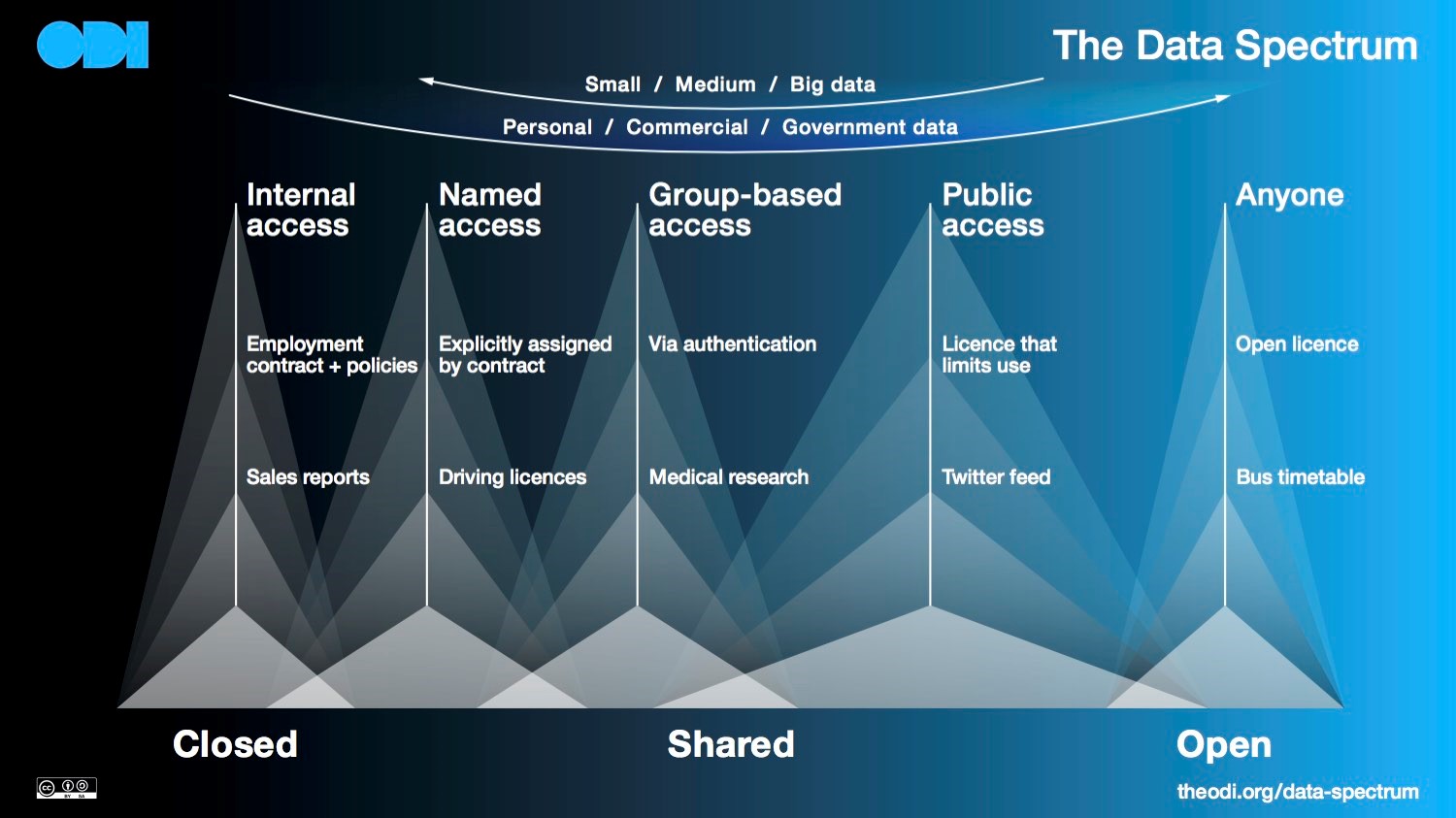Open Data Engagement Fund blog - Barry Doyle's attendance at the 2017 Open Data Leaders Network
29 Samhain 2017As someone who has led a local Open Data initiative for a number of years now I was delighted to be given the opportunity to attend the 2017 Open Data Leaders Network (ODLN) hosted by the Open Data Institute (ODI) in their offices in Shoreditch London in October 2017.
With attendees selected from applicants throughout the world the aim of the ODLN is to bring together leaders of government open data initiatives for the purposes of creating an extended network for the sharing of knowledge, ideas, and best practice, for discussing common challenges, and for developing open data advocacy.
In this case there were representatives from Israel, Argentina, Malta, Finland, Scotland, Poland, Germany, and Ireland, some representing national initiatives and others more regional and local ones. In common we were all strong advocates of the concept of Open Data and were looking to further develop our knowledge of the subject that we could use to the benefit of our own initiatives.

ODLN Participants and ODI facilitators
Ably hosted by Alex Leon the ODLN was an intensive week of lectures, workshops, and site visits, facilitated by a combination of ODI staff and representatives from various related organisations including the Open Knowledge International, the Open Data Charter and the World Wide Web Foundation, all adding to our overall understanding of the international Open Data ecosystem.

ODLN 2017 schedule
Personally I found the week extremely informative, enjoyable and stimulating and as a way of summarising I have documented some of the key points and considerations I took away with me in a number of short articles which I hope will be of interest to those with a general interest in Open Data and those looking to progress their own open data initiates.
Do we need to rethink our understanding of data?
As is often typical, just as you get your head around a concept or idea a different view is expressed that makes you stop and think. For a while now I have often included the analogy between data and oil in discussions about data as a way of emphasising the value that can be realised by making it available.
It was recently argued in an Economist magazine article that similar to how 100 years ago those who owned and controlled the flow of oil created massive wealth and exercised enormous power the same can now be said of data and therefore steps need to be taken to limit this power while ensuring personal data is protected. An alternative view was however expressed in another recent BBC News article where the author presents his viewpoint on the basis that rather than being finite like oil data is something we create and will continue to create in vast quantities, is something that can be used and reused for many purposes, and whether we exercise our rights or not it is something that we have some personal control over.
In one of the ODLN sessions facilitated by Leigh Dodds of the ODI we were also challenged to think of data as infrastructure in itself rather than of data as something that flows through a data infrastructure. A common analogy being that just as roads assist us in navigating to a location data assists us in navigating to as decision. I’m not 100% sold on this view yet as unfortunately its quite easy for people to arrive at a decision without using the data whereas it’s very difficult to navigate to a location without using the road network.

Source: ODI
Whatever the view what is certain is that data is a very valuable commodity, the amount of which will continue to grow at an ever increasing pace, that needs to be manged, controlled and protected but where possible made available for the purpose of releasing that value with as wide an audience as possible. If the data is available and the decision maker is aware of it and can use it I think it is safe to say that better decisions will be made.
We need to get more familiar with our Data
Sometimes it feels we are walking a thin line between open data and data protection and before we can think about opening up our organisations data for use and reuse under open licences, we need to develop an understanding of the data that our organisation is collecting, storing and using, in terms of its ownership, quality, completeness, and currency as well as whether it is suitable for publishing openly,.
The ODI’s Data Spectrum is a good means of classifying datasets however before we can put ourselves in a position to apply it we need to do our research and compile information (metadata) about those datasets. A key early step in any initiative is therefore to carry out a data audit.

ODI Data Spectrum
Although included as a key action in Irelands Open Data Strategy the carrying out of a data audit purely for the purpose of identifying data sets suitable for open publication may be viewed by organisations as too much effort, possibly because the many benefits (examples of which are highlighted in this video) accruing from the release of data are not properly understood and the direct benefit to the organisation itself may be limited.
However the cataloguing of an organisations data holdings is a starting point of any data governance programme, and with GDPR imminent a key element of ensuring compliance will be an understanding of what data your organisation is collecting and storing and where on the spectrum it fits. Therefore a data audit is a worthwhile task that will have benefits for multiple programmes and the good news is that there are tools to assist in this process, such as the Data Audit tool available to Ireland’s public sector bodies through the national Open Data Portal or the likes of the Data Asset Framework.
Barry Doyle
GIS Officer
Roscommon County Council

 Derilinx
Derilinx